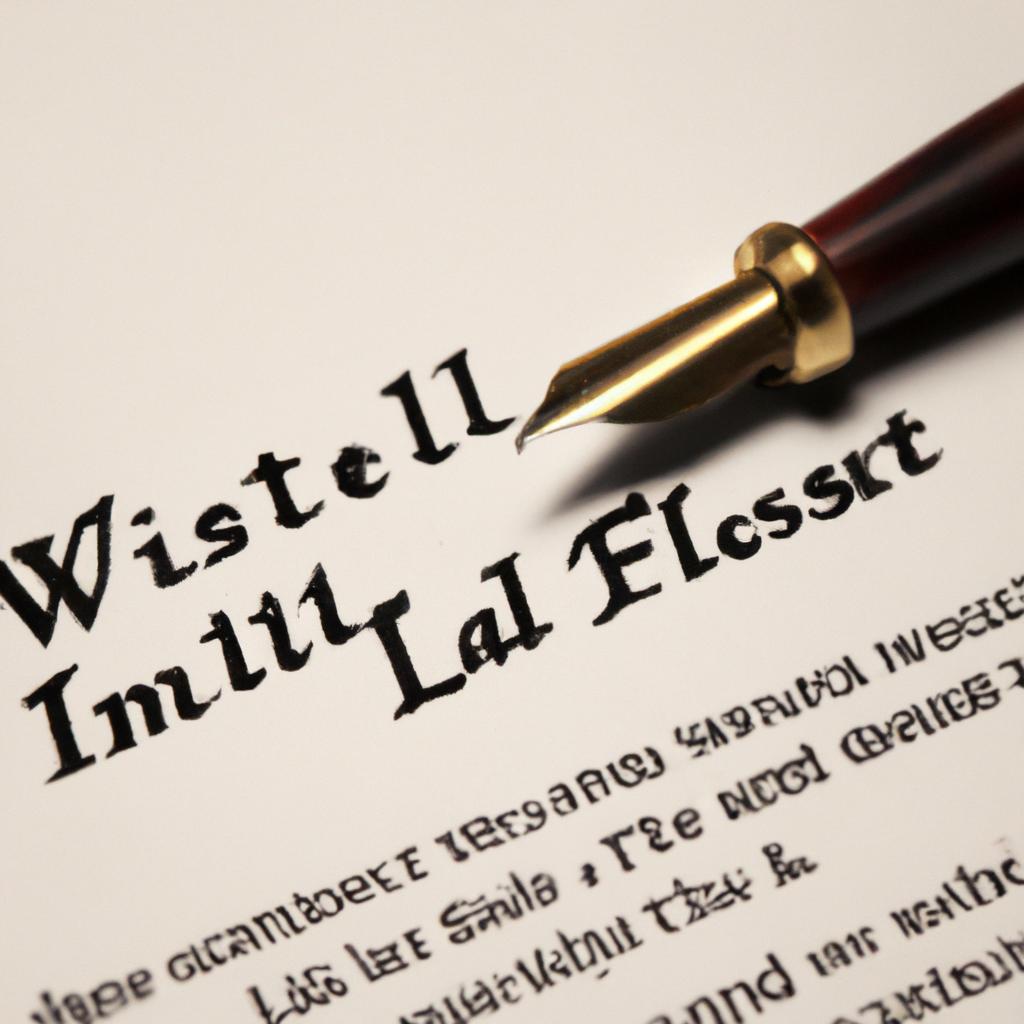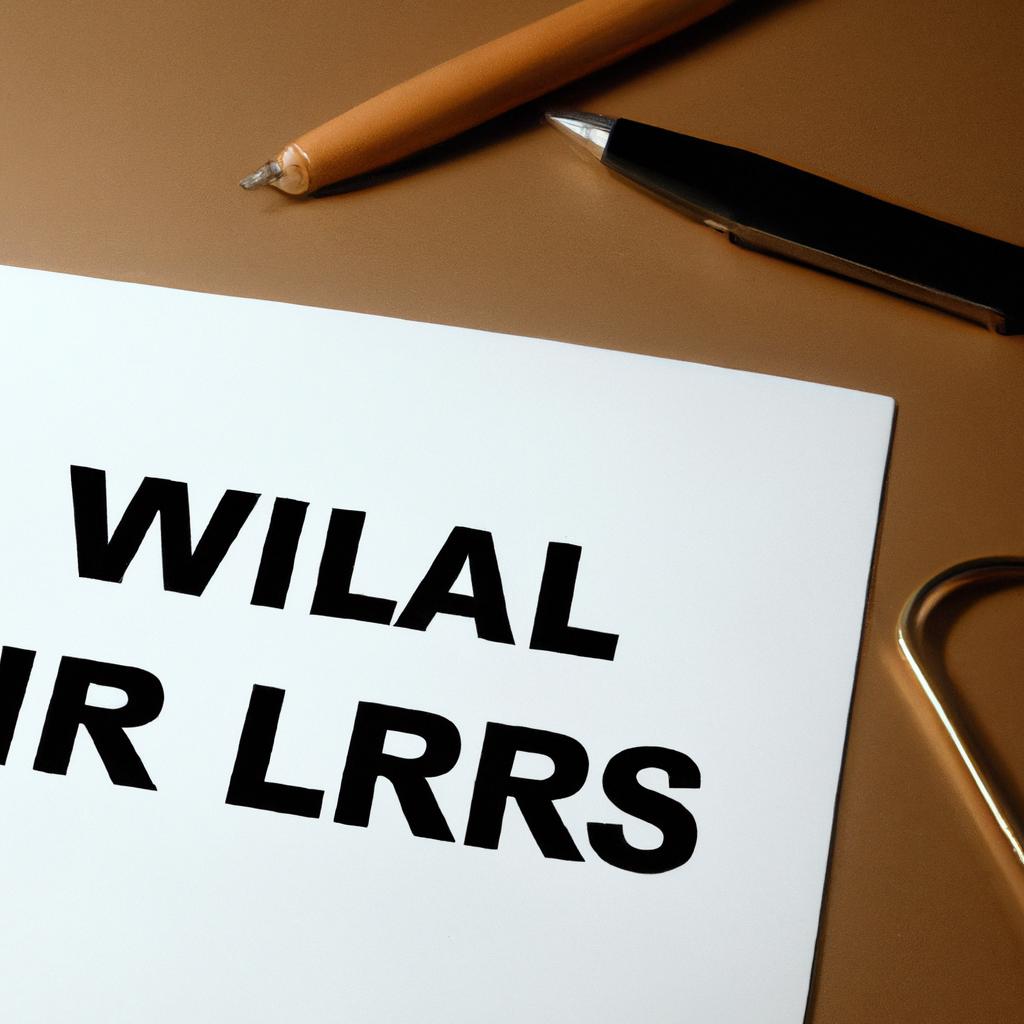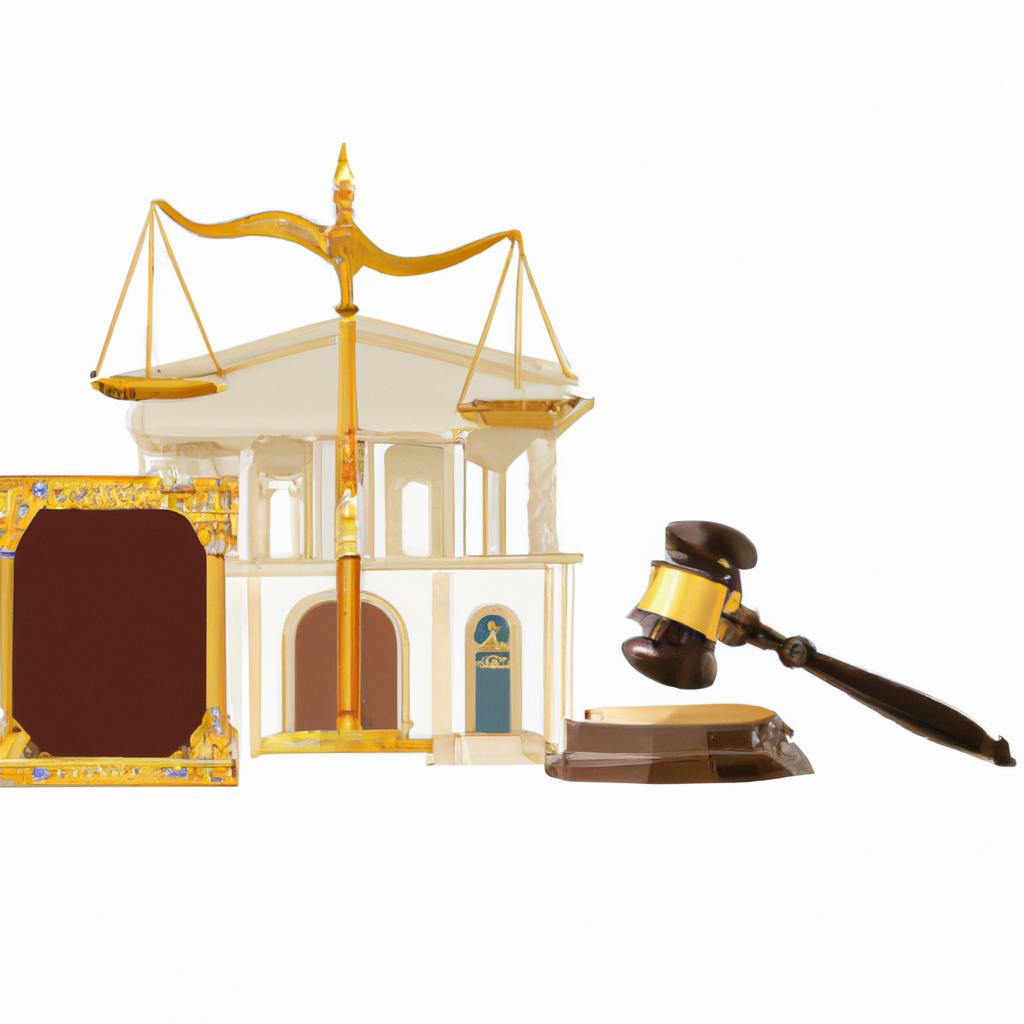In the realm of estate planning and probate, one central document holds the key to unraveling a person’s final wishes: the last will and testament. As seasoned practitioners in the field, the team at Morgan Legal Group in New York City understands the importance of locating and interpreting this vital legal instrument. Join us as we delve into the intricacies of finding someone’s last will and testament, providing expert guidance on navigating the complex terrain of succession planning.
Locating a Decedent’s Last Will and Testament
When a loved one passes away, one of the first steps in handling their estate is locating their last will and testament. This document outlines their final wishes, including how their assets should be distributed. Here are some tips on how to find someone’s last will and testament:
- Check with the decedent’s attorney: If the deceased had a lawyer who assisted with their estate planning, they may have a copy of the will on file.
- Search the decedent’s home: The will could be stored in a safe, filing cabinet, or other secure location within the individual’s residence.
- Reach out to family members and close friends: They may have knowledge of the whereabouts of the will or any previous discussions about its location.
| Method | Effectiveness |
|---|---|
| Check with attorney | High |
| Search decedent’s home | Medium |
| Ask family and friends | Low |
At Morgan Legal Group, our team of experienced attorneys can assist you in locating and interpreting a decedent’s last will and testament. We understand the importance of proper estate planning and are dedicated to helping our clients navigate the complexities of probate and estate administration. Contact us today for personalized legal guidance in New York City.

Effective Strategies for Searching for a Will
When searching for a person’s last will and testament, it is crucial to employ effective strategies to ensure a successful outcome. Here are some practical tips to help you locate a will:
- Check with the Probate Court: The first step is to contact the probate court in the jurisdiction where the deceased lived. They will have records of any will that has been filed for probate.
- Consult with Family and Friends: Reach out to family members, friends, and close associates of the deceased to inquire if they are aware of the existence or location of a will.
- Search Safe Deposit Boxes: If the deceased had a safe deposit box, it is worth checking to see if a will is stored there. You may need a court order to access the box.
- Hire a Private Investigator: In some cases, hiring a professional investigator may be necessary to help locate a will, especially if traditional methods have been unsuccessful.

Utilizing Legal Resources to Find a Will
When searching for someone’s last will and testament, utilizing legal resources can be crucial in ensuring that the proper steps are taken to locate and access this important document. One effective method is to hire an experienced estate attorney who can navigate the legal process and assist in locating the will through various channels. Additionally, engaging the services of a private investigator specialized in probate cases can also be helpful in tracking down the will.
Furthermore, exploring online databases and court records can provide valuable information on the whereabouts of a person’s will. These resources can include probate court websites, public records databases, and online will registries. It’s important to approach this search methodically and diligently to increase the likelihood of finding the will successfully.

Seeking Professional Assistance in Will Search Efforts
In your quest to find someone’s last will and testament, it is crucial to seek professional assistance to ensure that you are conducting a thorough and legally valid search. Professional help can provide you with the expertise and resources necessary to navigate the complex legal landscape surrounding wills and estates.
At Morgan Legal Group, our team of experienced lawyers specializes in estate planning and probate services. We can assist you in locating and accessing a loved one’s will, guiding you through the process with precision and care. By entrusting your search efforts to our skilled professionals, you can rest assured that your quest for a will is in capable hands.
Q&A
Q: How can I locate someone’s last will and testament?
A: To locate someone’s last will and testament, you can start by checking with the deceased person’s lawyer or estate planner.
Q: What if I don’t know who the deceased person’s lawyer is?
A: If you are unsure of who the deceased person’s lawyer is, you can try contacting local law firms or searching online for legal professionals who may have been involved in the creation of the will.
Q: Can I obtain a copy of the will from the probate court?
A: Yes, you can typically obtain a copy of the will from the probate court where the deceased person’s estate is being administered.
Q: What information will I need in order to access the will?
A: In order to access the will, you may need the deceased person’s full legal name, date of death, and the county where they resided at the time of their passing.
Q: Are there any other methods for finding a person’s will?
A: In some cases, the deceased person may have left a copy of their will with a trusted family member or friend. It is also possible that the will may be stored in a safe deposit box or with a professional will storage service.
The Conclusion
In conclusion, finding someone’s last will and testament may seem like a daunting task, but with the right approach and resources, it can be accomplished. Whether you choose to search public records, contact the person’s attorney, or seek assistance from a legal professional, it is important to remember that the last will and testament holds vital information regarding the deceased’s final wishes. By taking the necessary steps to locate and review this document, you can ensure that their wishes are properly carried out and their legacy is honored. Remember, patience and diligence are key when navigating the process of finding someone’s last will and testament. Good luck in your search.
 How Do I Find Someone’s Last Will and Testament?
How Do I Find Someone’s Last Will and Testament?
Losing a loved one is a difficult and emotional time, and one of the last things we want to think about during this period is their last will and testament. However, knowing about a person’s will and any instructions they may have left behind, can help ease the burden of handling their affairs and ensure their final wishes are carried out.
If you have been named as an executor or a beneficiary in someone’s will, it is important to locate the document as soon as possible. But what if you don’t know if a will exists or where to find it? In this article, we will explore the steps you can take to find someone’s last will and testament.
1. Check with family and close friends
The first step in locating someone’s will is to ask their family and close friends if they are aware of its existence. It is possible that the person may have disclosed this information to them or even entrusted them with the document. They may also know if the person had a lawyer or financial advisor who may have a copy of the will.
2. Look for a physical copy
Traditionally, a will is a physical document that is kept in a safe place such as a lockbox, safe, or with a lawyer. If you have access to the person’s home, it may be worthwhile to search for the will in their important documents or safekeeping areas. Keep in mind that not all people keep a physical copy of their will, so it is important to explore other options as well.
3. Check with the probate court
If the person has passed away, their will may have been filed with the local probate court. Probate is the legal process of proving a will and administering the estate of a deceased person. If the person had a lawyer, they may have filed the will with the court on their behalf.
To check if a will has been filed, you can visit the probate court in person or search for their website online. You will need the name of the deceased and the county in which they resided. Keep in mind that depending on the state, the will may only be accessible to certain individuals, such as the executor or beneficiaries.
4. Search online databases
In today’s digital age, many wills are now stored electronically. Several states have online databases where you can search for wills and probate records using the person’s name and other relevant information. Some websites may require a small fee for access, but it can be a useful and time-saving option.
5. Hire a private investigator
If all else fails and you are unable to locate the will yourself, you may want to consider hiring a private investigator. They are trained to locate and obtain important documents, and they may have access to databases and resources that the general public does not.
Benefits:
– Finding a will can provide closure and peace of mind to loved ones.
– Knowing what the person’s final wishes were can help avoid conflicts or disputes among family members.
Tips:
– It is important to search for a will as soon as possible, especially if the person’s assets and affairs need to be settled quickly.
– Keep in mind that a person may have more than one will. It is important to locate all versions and determine which is the most current and valid.
– If the person has moved to a different state or country, their will may be filed in that jurisdiction instead.
– Consider keeping your own will in a safe and easily accessible place to avoid any difficulties for your loved ones in the future.
Case Study:
Sarah’s grandmother passed away suddenly, and Sarah was the executor of her estate. Her grandmother had mentioned having a will, but Sarah had no idea where to find it. She asked family members and searched her grandmother’s home but was unable to locate the will. Eventually, she found out that her grandmother had filed the will with her lawyer, and it was stored in a safe at their office.
First-hand experience:
In my personal experience, my grandfather kept his will in a secure lockbox in his bedroom. While he had told us about it and given us instructions on how to access it, it was still a difficult and emotional experience going through his personal belongings after his passing. It made me realize the importance of having a conversation with loved ones about their final wishes and making their will easily accessible.
In conclusion, locating someone’s will can be a challenging and emotional task, but it is crucial in ensuring their final wishes are carried out. By following the steps outlined in this article and being proactive, you can save yourself and your loved ones from additional stress during an already difficult time. Always remember to be sensitive and respectful when discussing this topic with family and friends.




